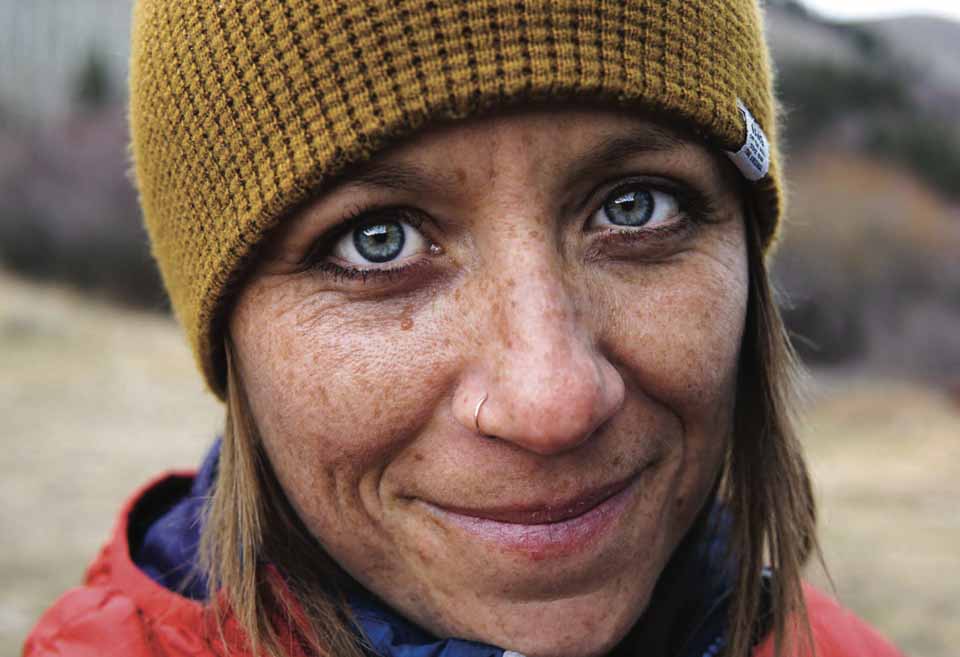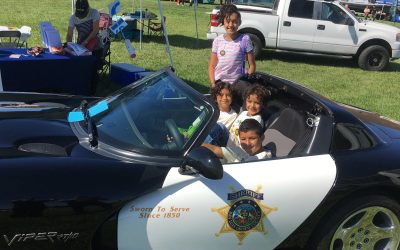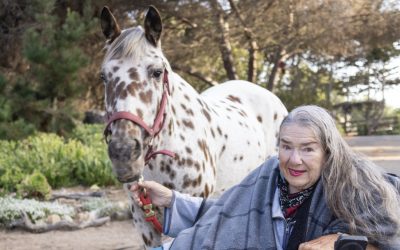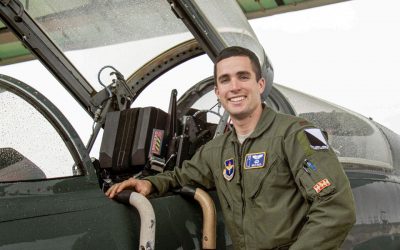After two wildly successful events, and a third one planned, it is time to add SLO Motion Film to the list of cultural entities that make San Luis Obispo such a uniquely wonderful place to live. Co-founded by San Luis Obispo native, and 2001 San Luis Obispo High School graduate, Hayley Nenadal, along with her partners Gracie Gilbert and Jameson Ritter, SLO Motion Film hopes to become a major film presence in the area for many years to come.
In June, SLOMF hosted a night of Patagonia Films for an enthusiastic, nearly sold out, audience at the Fremont Theater. In early August, the Palm Theater was full for a presentation of a documentary, Tribes on the Edge, and a Q & A with filmmaker Celine Cousteau, the granddaughter of Jacques Cousteau. On November 9th SLOMF will present a series of films related to climbing, featuring “Climbing Out of Disaster,” a short documentary about climbers who helped rescue people and clear debris in Puerto Rico after Hurricane Maria.
The daughter of Bruce Nenadal and Pamela L’Heureux, Hayley lived in San Luis Obispo until she left to attend Loyola Marymount film school in 2001. She identified her SLOHS track and cross country coach, Steve Boaz, and English teacher Eldra Avery as “mentors and defining people in my life. Mrs. Avery made me think critically about the world in a way that I’ve never unlearned. Coach Boaz taught me to push myself for my dreams.” Hayley is still good friends with teammates Christina Hand, Megan Ahearn and Jane Dexter.
Hayley is proud of her home town. When she brings friends to visit, they say, “It makes so much sense that you’re from San Luis Obispo.” Hayley said, “It’s the way people talk to each other and treat each other and the sense of community. My business partners say, ‘Wow, this town really shows up.’ I think I had that awareness when I was growing up.”
I was interviewing Hayley on the patio at Linnaea’s, and she said, “I remember coming to concerts here when I was a kid.” She also mentioned Nancy Herrmann, a close family friend and former owner of The Spindle, as an important person in her childhood. “We always had that sense of being outside and being free. My dream is to take Nancy to Mardi Gras in New Orleans for her 80th birthday.”
Hayley started making films in high school with friends like John Hampian, who is also in the film business. She admitted with a laugh that Jurassic Park is still her favorite movie. “I was always a film fan. If you asked my parents what I wanted to do in middle school they’d say work in film. In high school I was impressed by a documentary titled Baraka. A group of cinematographers traveled for two years to film in 24 countries. For me it was, ‘Oh my God, that’s possible.’”
In a moment of reflection, Hayley said, “I feel really lucky to be the age I am, living exactly when I live. I love being the generation that knows things both manually and digitally. We were able to take the transition in stride, but also played Nintendos that you had to stick a pencil into work. The computers we learned on are door stops now. For younger people today it’s like something is missing.”
Hayley chose Loyola Marymount film school because they said, “You’ll make a film your freshman year. It would be hands-on right away, both film and digital. I went to school with amazing people who are doing great things in the industry now. The experience there opened some crazy doors for me.” Through one of her connections, she went to work for George Lucas at Industrial Light and Magic. “I attribute that 100% to Loyola Marymount.”
Another big influence on Hayley was the year she spent as a junior in Dusseldorf, Germany, with European professors. She’d never been out of the country before. “It was a huge challenge, and it made me think about film making in a totally different way. They were teaching it from a European and documentary perspective before documentaries were cool in the United States. We think more linearly here. They also taught me that you don’t need five million dollars to make a good film.”
Hayley returned to Europe after graduating, not long after the beginning of the Iraq War. “It was so humbling at a time when our ego was ramping up so dramatically. From twenty-two to twenty-seven I went to thirty countries, searching for a deeper understanding of what it means to be a world citizen, delving into the documentary world along the way.”
At Industrial Light and Magic Hayley worked on films like Transformers and Avengers. For her it was the most direct way to reach the dream she had of working on films similar to the ones she grew up watching, like Back to the Future and Star Wars. But after a couple of years, around 2010, she realized it was not what she wanted to do. “I worked with some of the great people in that world, but I’m a really tactile person. We were tweaking a digital sunset in Transformers and I thought to myself, ‘I can’t remember the last time I saw a real sunset.’”
Quite spontaneously, Hayley left ILM and moved to New Orleans, which was offering great tax incentives to filmmakers. She worked as an independent contractor on lighting and as a production assistant on True Detective, 12 Years a Slave, Planet of the Apes and many other films. But during hurricane season insurance companies wouldn’t cover production.
During a lull Hayley took a job on a lighting crew for the Telluride Film Festival. She thought, “New Orleans is where the work is, but I love being in and running in the mountains, I think I have to leave.” “I’m just an inherently Western person,” she said.
Hayley has been working between the Telluride and Sundance Festivals since then, with a documentary focus, primarily as a liaison between the festival and the film makers at Sundance, and as a production manager at Telluride. “I thought, ‘Why are we making films about robots when we could be making films about cartels in Mexico? This is where I want to put my emphasis, this kind of storytelling.’”
Hayley is stepping down at Telluride because she is starting SLO Motion Film, a financial challenge she is willing to accept. “I fundamentally don’t want to work for other people anymore. I want to develop my new company. I’ve learned so much in San Francisco, New Orleans, Telluride and San Luis Obispo. The community I’ve developed is more valuable than money in the bank.”
The idea for SLO Motion Films came out of a shared experience that Hayley had with her partners. Having learned how to run huge productions and build huge teams, they thought, “Why can’t we do this?” They believe that stories can change people. “Film is a powerful medium to do that. It can open people up,” Hayley said. “We’re interested in people sitting in a theater together and having a conversation. San Luis Obispo is the perfect place to do that. We want to celebrate life and arts and culture. We want to make it cool to go to the theater, to have filmmakers present for discussion. We want to create magic in the room.”
The SLO HotHouse has picked up SLO Motion Film as a client. “We applied and they believed in us. It’s our goal to have as many local businesses involved as possible. We want to show a film at the Sunset Drive-In Theater. We want to involve Cal Poly and attract Cal Poly students. We know we can flourish in San Luis Obispo, a community built on meaningful personal relationships and experiences.”
To learn more about SLO Motion Film, go to slomotionfilm.com.





